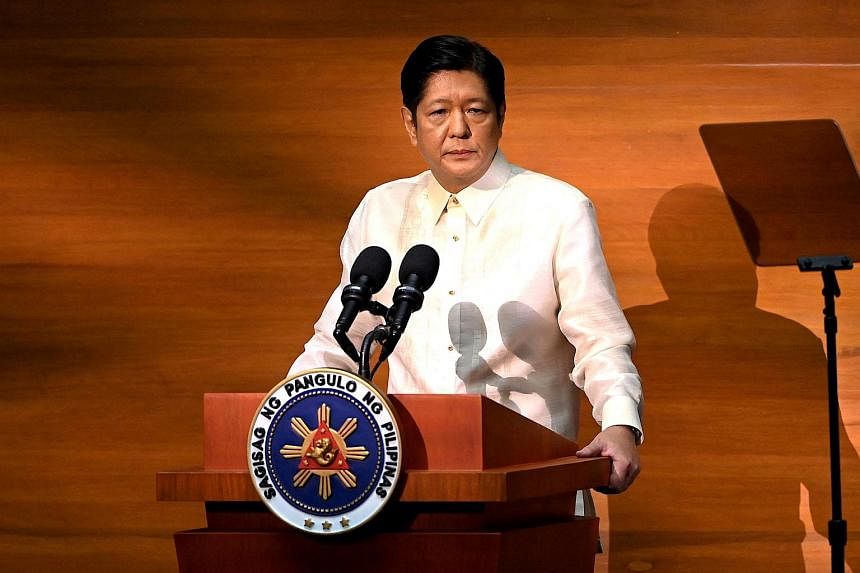MANILA - President Ferdinand Marcos Jr on Monday signed a new law requiring individuals in the Philippines to register ownership of their SIM cards, a move seen to help address the recent spike in text scams.
The SIM Card Registration Act is the first law Mr Marcos has signed as the country's president.
Congress earlier passed a version of this Bill under former president Rodrigo Duterte.
But he vetoed it in April 2022 due to a provision added by senators that would have also required individuals to use their real names and contact numbers when creating social media accounts.
The latest Act no longer has this provision.
The law's passage came about a month after the Senate investigated the large-scale text phishing scams attempting to steal mobile users' personal information for fraudulent transactions.
Several senators even reported receiving such text messages containing their first names.
The Cybercrime Investigation and Coordination Centre told senators in September that six syndicates are allegedly behind these scams.
Mr Marcos said: "With the signing of this Act, we will finally achieve what has long been overdue: An effective means of regulating the issuance of SIM cards to curb the spread of spam text messages and scams."
He said the SIM Card Registration Act will give law enforcement agencies the tools needed to deter and resolve crimes perpetrated using SIM cards.
He assured SIM card users that their information will be kept confidential, unless they give their consent for its release.
But telecommunications firms are now required to disclose SIM card users' personal details upon a court order or subpoena.
Law enforcement agencies investigating cases of alleged crimes committed using mobile phones may also write a formal request to telcos to disclose the SIM card owners' information.
The new Act requires individuals to register and present a valid identification document with telcos before the SIM cards can be activated.
They must provide their full name, date of birth, sex and residential address.
Minors using SIM cards will have to use the details of their parent or guardian, who must consent to the registration.
Tourists will also be required to register their SIM cards.
Existing SIM card owners, meanwhile, will be given 180 days to register their personal details with their telcos. Failure to do so would mean deactivation of their accounts.
The National Telecommunications Commission is tasked with coordinating with telcos and other concerned government agencies, including the National Privacy Commission, to formulate guidelines on the registration process.
Those caught using fake details to register their SIM cards stand to face jail time of between six months and two years. They may also be fined up to 300,000 pesos (S$7,291).
Those who resort to spoofing or pretending to be another SIM card user to mislead others could face jail time of not less than six years and/or a 200,000 peso fine.
Telcos that fail or refuse to register a SIM without a valid reason would have to pay a fine between 100,000 pesos and 1 million pesos, depending on the frequency of the act.
Telcos, their agents and employees who disclose SIM card users' information without their consent or proper court authorisation can be fined between 500,000 pesos and 4 million pesos.
Some lawmakers and experts, however, raised data privacy concerns over the SIM Card Registration Act.
Representative Arlene Brosas of progressive pro-women's rights group Gabriela believes phishing scams would continue.
"Even now, cyber attacks and data breach cases have not been resolved. What else will happen once consumers' data is already in the hands of telco firms? The government should first prioritise a secure implementation of data privacy measures," she said.
Lawyer and data privacy practitioner Numeriano Hernandez Jr told BussinessWorld on Sept 25 that not all Philippine government agencies have strong cyber-security practices.
"This may lessen the confidence of some people, and they may not fully trust the government with their data," he said.


